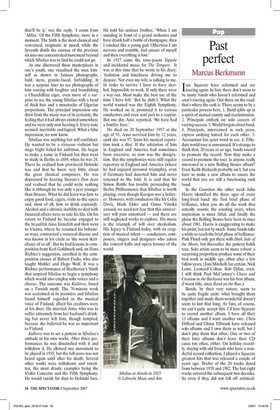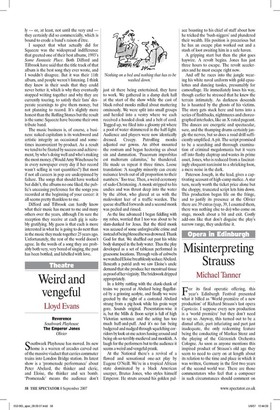Past perfect
Marcus Berkmann Isee Squeeze have reformed and are touring again. In fact, there don't seem to be many bands who haven't reformed and aren't touring again. Out there on the road: that's where the cash is. There seems to be a particular process here. 1. Band splits up in a spirit of mutual enmity and recrimination. 2. Principals embark on solo careers of varying success. 3. World forgets about band. 4. Principals, interviewed in rock press, express undying hatred for each other. 5. Accountant has quiet word in ear. 6. Fiftydate world tour is announced. It's strange to think that, 20 years or so ago, bands toured to promote the record. Now they make a record to promote the tour. Is anyone really interested in a new Rolling Stones album? Even Keith Richards probably isn't, but you have to make a new album to assure the world that you are still a functioning rock band.
In the Guardian the other week John Harris identified the three ages of every long-lived band: the first brief phase of brilliance, when you do all the work that actually counts; the coasting years, when inspiration is more fitful; and finally the phase the Rolling Stones have been in since about 1981. Harris is exaggerating to make his point, but not by much. Some bands take a while to reach the brief phase of brilliance: Pink Floyd only got there with Dark Side of the Moon, but thereafter the pattern holds true. Solo artists seem to be more robust: a surprising proportion produce some of their best work in middle age, often after a few fallow years. (Joni Mitchell, for certain. Nick Lowe. Leonard Cohen. Bob Dylan, even. I still think Paul McCartney's Chaos and Creation in the Backyard was his best album, if worst title, since Band on the Run.) Bands, by their very nature, seem to be quite fragile units: what brought them together and made them wonderful doesn't seem to last that long. As fans, of course, we can't quite accept this. I'd love Squeeze to record another album. I have all their 13 albums and I want another one. Chris Difford and Glenn Tilbrook have released solo albums and I own them as well, but I don't play them that often. One or two of their later albums don't leave their CD cases too often, either. On holiday recently, staying with old friends who have a wonderful record collection, I played a Squeeze greatest hits that was released a couple of years ago. Twelve of the 20 tracks dated from between 1978 and 1982. The last eight tracks covered the subsequent two decades. So even if they did not fall off artistically — or, at least, not until the very end — they certainly did so commercially, which is bound to erode a band's raison d'être.
I suspect that what actually did for Squeeze was the widespread indifference that greeted one of their best albums, 1993's Some Fantastic Place. Both Difford and Tilbrook have said that the title track of that album is the best song they ever wrote, and I wouldn't disagree. But it was their 11th album, and people weren't listening. I think they knew in their souls that they could never better it, which is why they eventually stopped writing together and why they are currently touring, to satisfy their fans' desperate yearnings to give them money, but not planning to record. It's slightly more honest than the Rolling Stones but the result is the same: Squeeze have become their own tribute band.
The music business is, of course, a business: naked capitalism is its watchword and artistic integrity an occasional and sometimes inconvenient by-product. As a result we tend to be fixated by success and achievement, by who's doing well and who's making the most money. (Would Amy Winehouse be in every newspaper every day if her record wasn't selling in vast quantities?) But most if not all careers in pop are underpinned by failure. The songs that should have worked but didn't, the albums no one liked, the public's unceasing preference for the songs you recorded at the beginning of your career: it all seems pretty thankless to me.
Difford and Tilbrook can hardly know what their music has meant to me and many others over the years, although I'm sure the reception they receive at each gig is suitably gratifying. My guess is that each is more interested in what he is going to do next than in the music they made together 25 years ago. Unfortunately, the rest of the world doesn't agree. In the words of a song they are probably both very, very bored of singing, the past has been bottled, and labelled with love.




































































 Previous page
Previous page